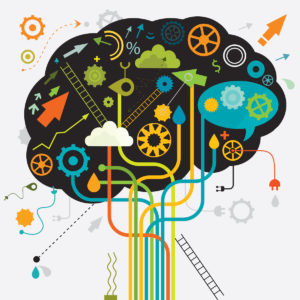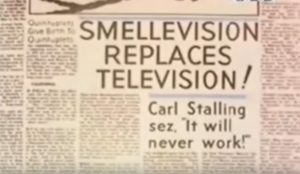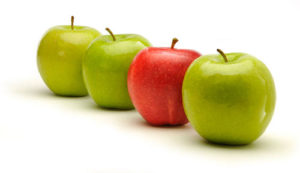- You are here:
- Home »
- Blog »
- Exploring Your Internal Map Of Reality (Series) »
- Exploring Your Internal Map Of Reality Part 7: Metaprograms Part 3
Exploring Your Internal Map Of Reality Part 7: Metaprograms Part 3
 We continue our discussion of metaprograms, which as we defined, are content-free filters that define our experience of the internal and external world.
We continue our discussion of metaprograms, which as we defined, are content-free filters that define our experience of the internal and external world.
Remember that all filters do one or more of the following:
- distort things in your awareness
- delete things from your awareness
- generalize things in your awareness.
Convincer Filters
Convincer filters are those that lead to you being convinced of something. There are 2 such filters:
- Convincer Representation
- Convincer Demonstration
The Convincer Representation filter uses our modalities to be convinced of something – for instance, we smell something bad and this would convince us that ‘something is rotten.’

This applies to all modalities – see something and become convinced of it being good.
Hear something or see something – likewise.
The Convincer Demonstration filter is built upon the number of times we experience something, as well as the modalities involved. If we see something only once, we may not be convinced that it is true until we see it a few more times. We also may need to experience it through several modalities such as hearing or touch.
 Action Filters
Action Filters
The action filter has 4 parts:
- active
- reflective
- both
- inactive
The question we ask here is:
‘when you arrive in a situation, do you act quickly, or do you spend time analyzing the consequences before acting?’
Many successful business people can act fast as they are able to size up the situation quickly. They would be on the active end of this filter. The are also very slow to change their decisions and only do so if further information mandates it.
On the other hand, people who have trouble making decisions are on the inactive side. They may have plenty of information at their disposal to make the decision but still have trouble deciding. These are on the inactive side of the filter.
Then there are those who are between who are both active and reflective.
Additionally there is a strong correlation between Perceivers, who like to keep their options open, and the inactive / reflective side of the filter.
Less Important Metaprograms
For completion sake, below is a discussion of other filters that, whilst they do play a role in the Internal Map Of Reality, are of lesser importance than the others.
Affiliation Filters
 This filter describes how people work together in groups – for instance are you a ‘team player’ or do you like to work alone. Or do you like to be the ‘boss cocky?’
This filter describes how people work together in groups – for instance are you a ‘team player’ or do you like to work alone. Or do you like to be the ‘boss cocky?’
This relates back to some of the other filters we have described. For instance, the person who likes to work alone is very likely to have an internal frame of reference and be an introvert. By contrast, a ‘team player’ is most likely an extrovert and have an external frame of reference. Team Leaders and other executives are likely to have an internal frame of reference and be highly chunked up (Intuitor).
Work Preference Filter
This filter determines what people like to work with – things, systems or people. This is self explanatory.
Primary Interest Filter – people, place, things, activity, information.
This filter is also self explanatory. If someone asks you what’s your favorite restaurant, you could answer in one (or more) of the 5 ways above. Someone interested in people might mention how the people there are very helpful, or that the menu is very good, or that the location is very handy.
Chunk Size filter
 The four options here are:
The four options here are:
- specific
- global
- specific to global
- global to specific
If you recall the article on chunking, global means ‘chunked up’ whereas specific means ‘chunked down.’ Some people focus on the big picture first and are not too concerned with details. Others are the reverse: they are too much down in the details and cannot see the big picture.
This filter is related to the Sensor/Intuitor metaprogram. Intuitors tend to be chunked up and Sensors tend to be chunked down.
One thing to note about this is that all intelligent people chunk up or down at will and pick the chunking level that is most appropriate or which serves them best.
They think in terms of either global to specific – they ask what is a specific ramification of a global concept (chunk down), or they do the reverse – they observe phenomena and ask what bigger concept this is an indication of (chunk up.)
Relationship filter (Same or Different)
 People often see things as being different from each other, or they can see things as being the same as each other.
People often see things as being different from each other, or they can see things as being the same as each other.
Many psychological tests use images to determine which of the sides that people take.
The question asked will be to ask ‘in what way are these the same’ and ‘in what way are these different’.
Some people will find the differences easy to spot but not the sameness. Conversely others will find the differences hard to spot but not the sameness.
‘Difference’ people actually like variety and change. They get bored easily and always need to move on to the next project.
Conversely, ‘Sameness’ people usually stay in their job longer and detest change – even if it is only minor.
Click here for Part 4 of Metaprograms
